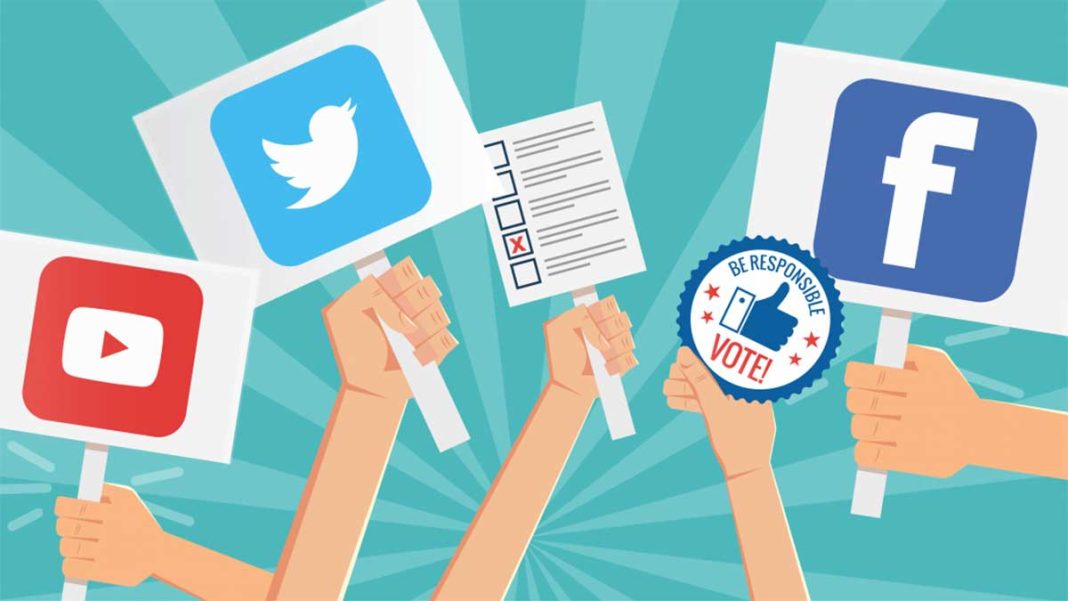Ways to influence public perception are becoming numerous with the technological advancements.
Try and ask Donald Trump, and he’ll tell you that the media wields a great deal of power over the democratic establishment of the United States.
It is clear that social and mass media have played a significant role in politics since the emergence of freedom of the press as the pillar of Kenyan democracy.
To make informed decisions, voters need knowledge, and it is the role of journalists & bloggers to give it to them.
But Can The Media Really Affect An Election Outcome?
Let’s use the recently concluded USA elections. In addition to systematic electoral fraud, which most analysts believe would be difficult to do, Trump claims that the election has been “rigged” by a distortion in media reports.
Current changes in the media environment have altered the way the media deals with politicians, campaigns and the voting public.
And, at a time when confidence in social media is at an all-time peak, mainstream media has come under criticism from commentators on both sides of the spectrum for its political coverage.
The evolving role of the media in the political process
Gone are the days netizens would get news from watching tv or listening to radio and reading newspapers.
The revolution in social media news aggregators and blogs has brought about a paradigm shift in ways of news delivery and social influence.
Folks living the village can now access real time news by virtual of having just a Facebook account ,a browser and internet on their smartphones.
As the bloggers build their credibility, they are gaining massive followings in unimaginable ways.
Who To Support ?
The first way media gets involved in elections is by deciding which candidates to cover and how much.
Those choices alone can have a huge effect on voter perceptions.
As hard as it is to believe, the biggest thing that drives elections is simple NAME RECOGNITION.
Regina Lawrence, executive director of the SOJC’s Agora Journalism Center
Research has shown that certain candidates can actually be left unnoticed because they can’t win enough media interest.
This phenomenon was most evident during the Republican primaries.
Trump generated a wide proportion of media attention.
He was able to get the equivalent of massive advertising buys without having to spend much money.
Publish Stories That Will Drive Traffic
For the media, this excessive reporting was motivated more by economics than by political agenda.
In a dynamic 24/7 news cycle, news media are reporting articles that can generate traffic.
And, due to his pre-existing popularity and willingness to create controversy, the reports were mostly about Trump.
Did the free press make a difference?
Since this last year’s Republican primaries contained such a huge number of candidates, Trump’s willingness to stick out among the crowd likely played a major role in his selection.
Hypocrisy, Narratives, And Kenya’s Division
Many media sources gain biased audiences, suggesting political biases in their reporting.
Again, this phenomenon is motivated by business.
Today’s news consumers can get the basic facts from a quick internet search.
Many publications have differentiated themselves by shifting from straight news to context and analysis (blogging).
Unfortunately, the increasing political controversies in the media appear to be driving division in the society as well.
Selective exposure is the tendency many of us have to seek out news sources that don’t fundamentally challenge what we believe
about the world.
There is a connection between selective exposure and the increasing division in political attitudes in this nation. And this difference is directly due to the emergence of more biased news outlets.
In the 2022 presidential race, the narratives that Ruto is a corrupt politician and Uhuru is a sabotaged by his deputy,
have dominated 2022 politics coverage.
The media perpetuates character-based scripts that affect candidates perception by the public.
Social Media: Echo Chamber And Direct Line To The Masses
According to a recent Research study, 62 percent of Kenyans get their news via social media platforms.
What they might not realize is that the news they see is heavily filtered.
What we see on Facebook is dictated by algorithms that decide what you see based on what you like and dislike, what you comment on and click on.
Rather than getting a diversity of perspectives that contribute to political discourse, we see an echo chamber.
On the other hand, social media gives users more direct access to candidates than ever before.
With social media, voters may believe they have an intimate relationship with a candidate they will probably never meet
in person.
And candidates have unprecedented control over the images they present.
Social media allow candidates a direct means by which to communicate with the voting public, thereby bypassing the mainstream media as a gatekeeper.
Online Polls
One of the most notable developments in the data journalism space are tools to make predictions about the
outcomes of elections.
The most prominent example of this is the work done by Ipsos Synovate.
Much of the data Silver crunches come from polls, one of the most common topics of election coverage.
Polls influence voter perceptions.
And we know that how candidates are doing in the polls can then influence the type of coverage they get.
The media concentrates on the front-runners.
And the more coverage those candidates get, the higher they tend to climb in the polls — a dynamic that can turn into a self-perpetuating cycle.
At least one thing hasn’t changed: Monitoring the workings of power to deliver the full story to the people is still the most important part of the journalist’s job description.

